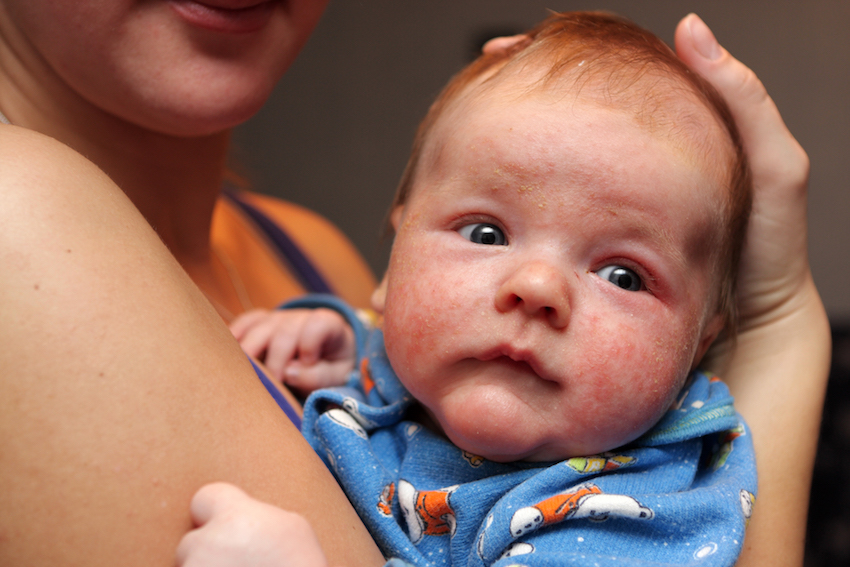One of the most asked questions we receive on the Allerchic Facebook page & community group is What doctor or healthcare professional should I see to help with my eczema. It is easy to be overwhelmed by the number of health care professionals that are available so here we have broken down some of the available recourses & what they can offer.
Allerchic community page
Allerchic Facebook Page:
It is important to remember that there is no known cure for eczema, this is not to say that the right healthcare professional can’t get your eczema triggers & flare ups under control.
Your local doctor (AKA General Practitioner or GP):
This is an important first point of contact for many people looking for eczema treatment. Your GP or local doctor can be an important link in the delivery of healthcare services for you & your family. Your GP will be able to confirm a diagnosis of eczema & will be able to offer general information & treatment based on popular medical trends. This is usually in the form of medications including topical creams & steroids. Your GP may also order blood tests or basic allergy testing to see if this may be contributing to the flare up of your eczema. Your GP can also refer you to an immunologist, allergist, pediatrician or dermatologist who can further assist with managing your eczema.
Pediatrician:
To see a pediatrician usually you need to be referred by your GP, a pediatrician is a doctor that specializes in the care of babies & children until the age of 18yrs. A Pediatrician is a medical doctor who can diagnose, manage & treat a broad range of childhood illnesses, diseases & health problems including eczema. A pediatrician can offer treatments including prescribing medications, topical ointments, diet & lifestyle changes, wet wrapping & bathing routines. Your pediatrician may also arrange for blood, allergy & intolerance testing & management or they may refer you to an immunologist, allergist, dermatologist to help assist manage your child’s or baby’s eczema. Your pediatricians will usually communicate your eczema treatment plan with your GP to form a healthcare plan.
Dermatologist:
A dermatologist is the Medical Doctor who specializes in diagnosis & treatment of diseases of the skin, hair & nails. A dermatologist can define what type of eczema you may suffering from as well as prescribe a treatment plan to help reduce the inflammation, dry skin or itching that is associated with eczema. Dermatologists are usually more up to date with the current medications & treatments available in relation to eczema & skin management. Treatment plans may include a combination of lifestyle changes, diet changes, wet wrapping, bathing routines, medications & topical emollients or steroids.
Some dermatologists look at the reaction of the skin while others will also look into what is causing the flare up, it’s important to discuss with your dermatologists what their approach will be. Your dermatologist will usually communicate with your GP to form a health care treatment plan.
Immunologist:
You will need a referral from your GP to see an immunologist for an eczema treatment plan. An immunologist is a medical professional who specializes in the diagnosis, treatment & management of diseases of the immune system. As eczema is widely regarded as an immune fault & can be closely related to allergies & allergic reactions you may be referred to see an immunologist. An immunologist will look at the immune system as a whole. An immunologist can look into what may be causing the eczema to flare. Is the eczema flaring as a reaction to environmental or internal triggers, is there another immune function which is flaring the eczema skin, these are all things an immunologist can assist you with. An immunologist may order testing including skin prick tests, blood tests, lung tests, etc. All of which may assist in formulating an eczema management plan. An immunologist may suggest dietary, lifestyle, bathing & bedtime routine changes as well as prescribe medication & topical treatment options.
Local Hospital
If you feel that your eczema is infected (if you have high temperatures, swelling around the rash, a yellow ooze or unusual pain) and you cannot wait to see your GP you may feel it’s necessary to be present to your local hospital for treatment. In the emergency department, you will be triaged & may have to wait to see the Doctor. (It is important to remember that hospitals triage patients on severity of symptoms not on arrival time). When eczema is severe it is quite often treated in hospital. Blood tests may be taken to exclude the presence of infection, wet wrapping is usually the most common form of treatment & treatment of the infection, if present. Your admitting doctor may also refer you onto ongoing treatment via a community nursing team, day clinic or specialists as required.
Community Nurses or Clinical Nurse Specialists:
Community Nurses are a team of nurses who will assist to implement your health care or skin management plan. Usually, a referral is required from either your GP, Specialist or local hospital. Your Doctor will outline a treatment such as wet wrapping or wet dressings which will be carried out or taught to you by the specialist nursing team, either via a day clinic or a home visit.
Dietician:
A dietician is a healthcare professional that is trained in food & nutrition, a dietician may assist in identifying common food triggers for eczema & assist with optimal food nutrition for skin & immune health. If an allergy has been diagnosed, a dietician can assist with maintaining nutrient levels while avoiding or substituting certain foods.
Other forms of assistance:
I think it’s also important to note that some people have also received relief from consulting Naturopaths, Chinese Medicine, homeopaths, acupuncturist & kinesiologists in combination with other treatments.
As there is currently no governing body for these treatments in Australia (Like the Australian Medical Association, or The dieticians association of Australia) it can be difficult to find the right practitioner for your family – I usually advise asking your GP, Family & friends for positive referrals to these services.
You might also like to read:
The itchy dozen – Top 12 things people living with eczema want you to know









